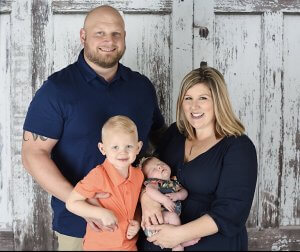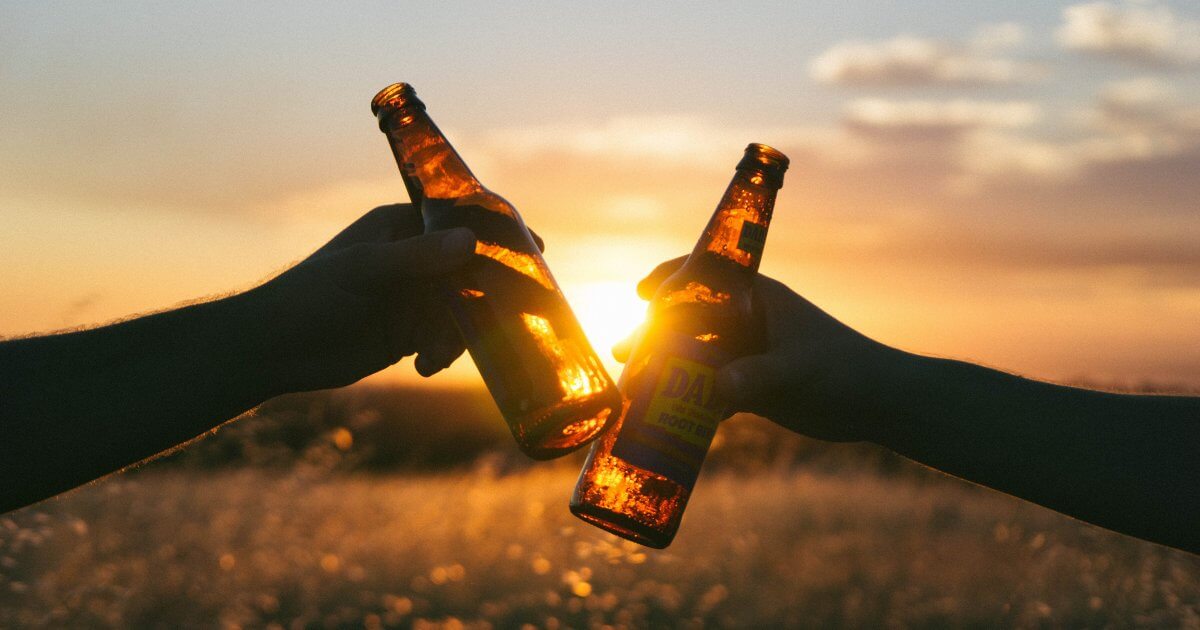The latest study on alcohol and cancer risk is out, and it suggests that cancer patients — and cancer survivors — have a high prevalence of alcohol use, including binge drinking.
The study, published in the January issue of the Journal of the National Comprehensive Cancer Network, and which surveyed 38,000 people with a known diagnosis of cancer, found of those who drank, one in five reported binge drinking, while one-third reported drinking more than moderate levels.
Read MoreSurvivor Insights into Drinking
SurvivorNet reached out to community member and three-time cancer survivor Ed Yakacki, 41, to ask about his drinking habits. He says he understands why patients and survivors might lean too heavily on alcohol before, during and after cancer treatment.
“When my tumor was being misdiagnosed, I was in pain,” Yakacki tells SurvivorNet. “I was using alcohol as a tool, to self-medicate. After I was diagnosed, I drank because I didn’t want to face what I’d had to go through.” Finally, he says, “after a three-year battle, I got done with my treatment and my oncologist said, ‘You can go live your life’. But I was still feeling like a victim.”

Ed Yakacki and his family
Yakacki, now cancer free, has become an advocate for cancer patients. After 23 surgeries, 32 rounds of chemo, 61 radiation treatments, and seven blood transfusions, he’s had plenty of experience. He advises those facing a diagnosis not to minimize the emotional implications of cancer.
“Being male, I thought I was so tough. Cancer makes us realize how fragile life is. There are so many layers to this disease. You think, ‘This isn't the way my life is supposed to be.’ But nobody gets the life they think they're supposed to live.”
The good news, says Yakacki, cancer treatment now is more likely to include therapy. “When I was diagnosed in 2008, I was 29 years old. I felt alone on an island. Today, they’re more aware of the layers –the emotional implications.”
He now works with newly diagnosed patients and finds that the support he gives to others has allowed him to move forward. “Whether you have cancer or not, drinking a lot of alcohol is never a good idea.”
Dr. William Breitbart, chair of the department of Psychiatry and Behavioral Sciences at Memorial Sloan Ketting Cancer Center, on learning to deal with vulnerability.
A Better Way to Cope
SurvivorNet also spoke with breast cancer survivor Tiffany Dyba, who says that knowing the risks, her cancer journey had the opposite effect — it kept her away from alcohol.
“I love wine,” Dyba says, who has a blog about breast cancer. But she was “almost afraid to have a drink for fear of recurrence.”
She adds, “I think the real story is around the fear of drinking and cancer. I promise you there are many folks out there who are actually scared to drink.”
For her, she says, “what has helped me on my cancer journey has been therapy, exercise, and support and love from my family and close friends. I would say those three things have really been game-changers. … I drink less since my cancer diagnosis in 2018. I think really honoring my body and respecting everything it has done for me is part of wanting to be a more healthy version of myself.”
The Link Between Alcohol and Cancer Risk
The link to alcohol and cancer risk is well established. The National Toxicology Program of the U.S. Department of Health and Human Services lists alcohol as a known human carcinogen, meaning a "cancer-causing" substance. And a study that came out a year ago in the journal Cancer found that drinking alcohol every day even a small amount may increase the risk of the disease.
RELATED: Binge-Drinking Rates for Some Women Double, Study Finds Which Leaves Them at Risk for Cancer
SurvivorNet has also reported on several studies that show a link between excessive alcohol consumption and cancer risk. For instance, an extensive analysis of studies looking at breast cancer risk concluded that women who drank more than 45 grams of alcohol per day (that's about three drinks) had one-and-a-half times more risk of developing breast cancer than non-drinkers.
Learn more about SurvivorNet's rigorous medical review process.

